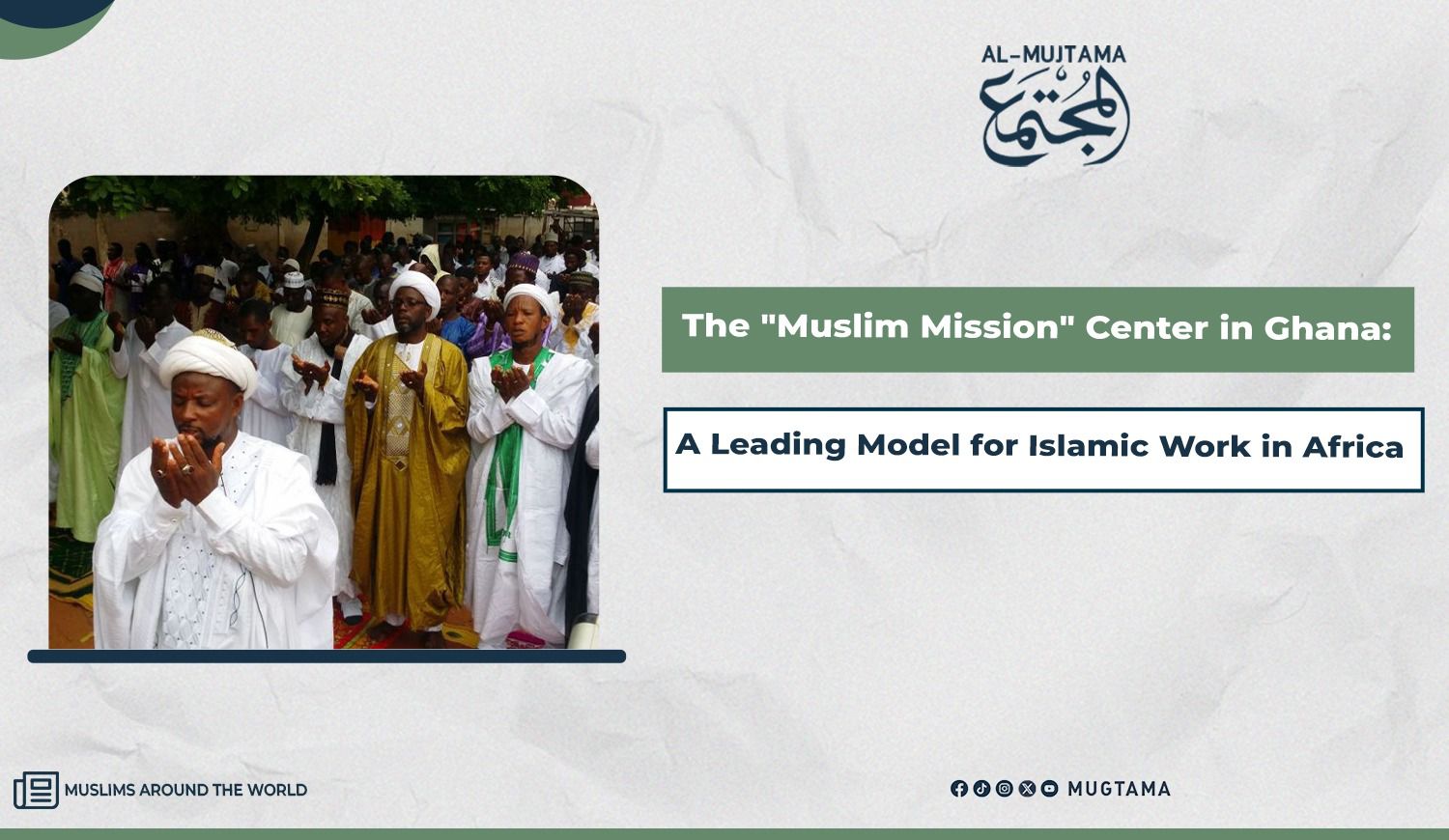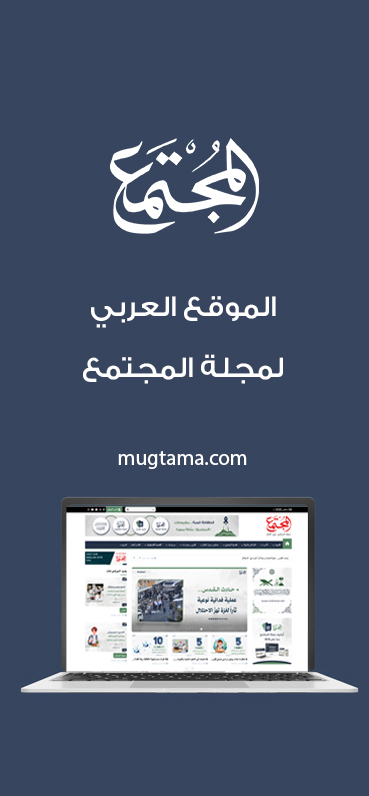Muslims in Africa
The "Muslim Mission" Center in Ghana: A Leading Model for Islamic Work in Africa

At the heart of Ghana, a West African nation known for its political stability and religious tolerance, the "Muslim Mission" Center stands out as a prominent Islamic institution. For over six decades, it has served both Muslims and non-Muslims alike.
Founded in 1957, right after the country's independence, the
center was established as a Da‘wah (proselytizing), charitable, and educational
institution. Its goal is to spread the tolerant values of Islam, drawing from
the Quran and the Sunnah, with a strong focus on education, social welfare, and
local community development.
Today, the center is a beacon for Muslims in Ghana.
It manages dozens of schools, oversees health and charitable programs, and
initiates cross-border Da‘wah projects, despite facing financial, legal, and
social challenges.
The Center's Da‘wah and Service Initiatives
First: Religious and Secular Education
- The
center supervises over 166
schools, covering all stages from kindergarten to high school. It
integrates Islamic values into the curriculum, allowing students to
combine modern knowledge with religious observance.
- It
has established several small hospitals and orphanages, in addition to
fresh water projects, serving both Muslims and the poor in rural and urban
areas.
- It
offers scholarships to outstanding, low-income students and provides
training programs for youth and women to prepare future leaders for the
Muslim community.
Second: Da‘wah Through Education and Media
- The
center has published numerous Da‘wah books, including one that clarifies
the relationship between Prophet Jesus (peace be upon him) and Prophet
Muhammad (peace be upon him) from an Islamic perspective. This effort aims
to bridge understanding with Christians, who form the majority of Ghana's
population.
- It
translated the meanings of the Quran into the Twi language,
one of Ghana's most popular local languages, which helped spread the
message of Islam in a way that resonated with people.
- It
broadcasts religious content on local television and radio stations, using
multiple languages such as Twi, Fante, and Hausa, to ensure its message
reaches the widest possible audience.
Third: Unity of Community and Awareness
- The
center organizes annual conferences, such as "Unity
in Diversity for a Prosperous Community," where Muslims from
different regions gather to discuss shared issues and strengthen
brotherhood.
- It
holds Quranic competitions, memorization circles, and training courses for
Imams and preachers. It also organizes youth, sports, and cultural
activities.
- It
provides educational and awareness courses for pilgrims before their
travel to Mecca, ensuring they are well-versed in the rituals and
etiquette of Hajj.
Fourth: Establishment of Specialized Educational Institutions
- The
center founded the "Ghanaian
Lebanese Islamic School," which offers modern education
blended with Islamic values from kindergarten through high school.
- It
supported the creation of Islamic secondary schools in the Ashanti
region, such as the Islamic Senior High School in Kumasi and the
Skaifiya Islamic Senior High School. Thousands of students have graduated
from these schools and have become an important part of the country's
academic and professional elite.
Obstacles and Challenges
1. Sustainable Funding: Despite
its accomplishments, the center faces a major challenge in securing continuous
funding. Its activities largely depend on donations from individuals and
charitable organizations, both domestic and foreign. With a large number of
schools and charitable projects under its supervision, a stable and permanent
source of income is urgently needed.
2. Islamic Identity in a Multi-Religious
Environment: Ghana is a predominantly Christian country with a
significant Muslim minority. While the nation is known for its tolerance,
Muslims sometimes face issues, such as some public schools refusing to allow
female students to wear the hijab. While national peace institutions have
intervened to find solutions, the issue remains a continuous challenge.
Additionally, Muslims' adherence to their religious practices
is sometimes misunderstood and perceived as fanaticism. This requires a strong
Da‘wah and media effort to present an accurate image of Islam.
3. Developing Leaders and Staff: There is
a great need to train young people to manage schools, develop Islamic media,
and organize community activities. The center makes some of these efforts, but
it needs greater support in preparing Muslim leaders and thinkers.
4. Sectarian and Social Diversity: Muslims
in Ghana live within a diverse religious and intellectual landscape (Sunni,
Shia, Sufi orders, various Da‘wah groups). This diversity requires continuous
efforts to foster unity and cooperation and prevent divisions that could weaken
joint Islamic work.
5. Legal and Regulatory Challenges: As a
non-governmental organization, the center must adhere to state laws and
regulations governing educational and charitable institutions. This requires
constant administrative and legal effort, in addition to caution against any
potential politicization or restrictions on its activities.
The "Muslim Mission in Ghana" is not just a
traditional Da‘wah institution; it is a comprehensive model that combines
education, social welfare, Da‘wah, and interfaith dialogue. Despite the
challenges it faces, it has successfully established a strong presence for
Muslims in a country known for its religious and cultural diversity.
The center's success is proof that Islam can offer practical
solutions to communities by combining authenticity with modernity, adhering to
principles while remaining open to others. With greater support and better
funding, this center could become a leading, exemplary model for all of Africa.
--------------
These might interest you:
Senegal’s
Journey: Embracing Democracy and Islam as Pillars of Progress











